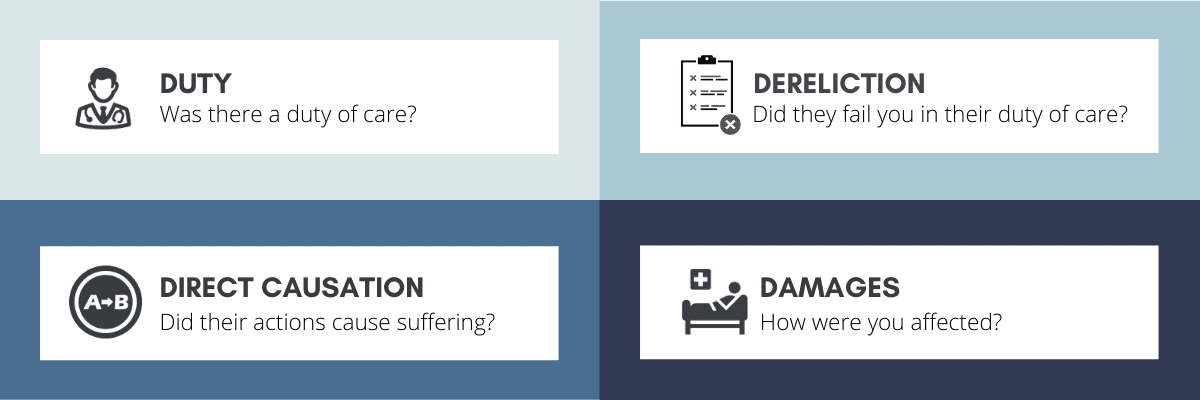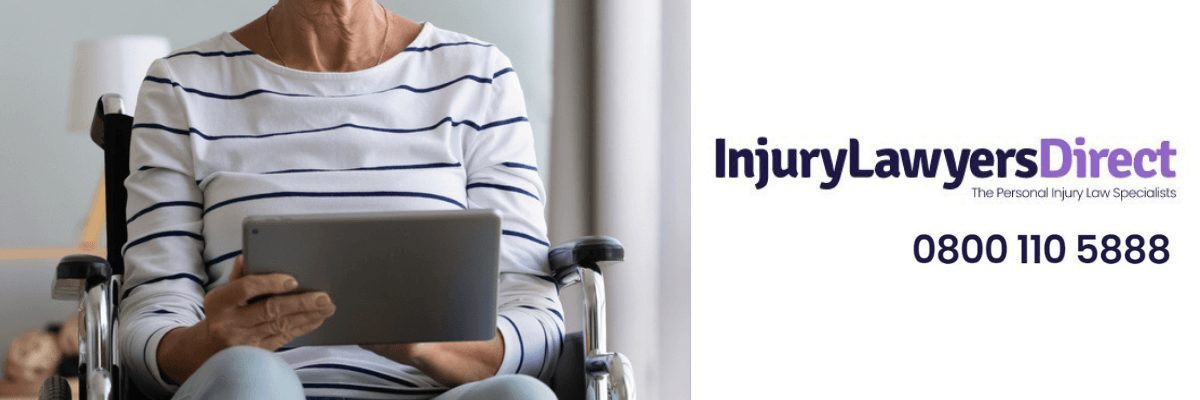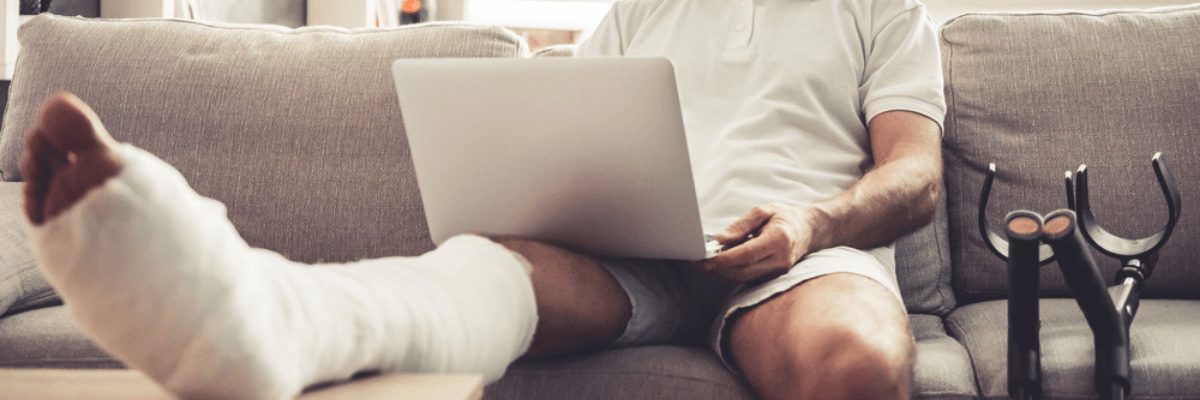Feel like you’ve been let down by a medical professional?
We understand how upsetting and frustrating it can be. These are people you should be able to trust. And if they did something – or failed to do something – that has caused you harm, it’s only natural to want justice. The question is, are you eligible to make a medical negligence claim?
Not all errors made by medics and healthcare professionals count as ‘negligence’. And for a claim to be successful, the ‘4 D’s of medical negligence’ all need to be proven. Here we explore what these 4 D’s actually are and the best steps for you to take if you believe you’ve been affected.
The four D’s of medical negligence

Duty
First things first, for a claim to be valid, you need to prove that a ‘patient-healthcare provider’ relationship had been established. This means the healthcare provider had agreed to advise or treat you – and, as such, they owed you a ‘duty of care’.
Anyone working in a medical or clinical capacity must adhere to strict protocols and guidelines to protect your safety. They must also ensure you’re fully-informed. And if they feel they don’t have the skills or knowledge to care for you properly, they should refer you to somebody who can.
Establishing this ‘duty of care’ is usually pretty straightforward. In fact, it can be simple as providing copies of medical records – that show which healthcare professional was overseeing your treatment.
Dereliction
The second ‘D’ stands for dereliction. This may not be a term you’re very familiar with. But essentially, it refers to any instance in which a healthcare professional failed in their ‘duty of care’ – and didn’t provide you with the level of care or standard of treatment that you’d expect in the circumstances.
Dereliction is also known as a ‘breach of duty’ and some common examples include:
- misdiagnosis
- delayed or incorrect diagnosis
- surgical errors
- medication errors
- dental errors
- incorrect treatments
- hospital neglect
- birth injuries
For a medical negligence claim to be successful, you must show that the physician or healthcare provider breached their duty of care – and didn’t comply with current accepted standards or best practices.
Direct causation
To claim compensation for medical negligence, you’ll need to prove that a breach of duty was the direct cause of damage. In other words, did the action – or inaction – of the health professional in question, directly cause the pain and suffering you have experienced?
Sometimes, this can be very easy to verify. But in other cases, proving ‘direct causation’ can be difficult. No matter how negligent the healthcare professional has been, you won’t be able to make a claim unless you can prove it – which is why, it’s usually worth seeking the support of a legal team with experience in this area.
Damage
Last but not least, the fourth ‘D’ refers to damages.
For a medical negligence claim to be valid, you must also demonstrate how the dereliction caused damage. How has the health professional’s mistake affected you? This, of course, includes the physical effects – but also the psychological, emotional, and financial consequences of their error.
Evidence will be needed to show exactly how the breach of duty has impacted your life, and can include medical records, prescription records, statements from other healthcare professionals, financial records, and proof of the cost of any corrective or rehabilitative treatments.

Find out if you’re eligible today
To find out more about medical negligence and whether you may be eligible to make a claim, the best option is to reach out to our medical negligence solicitors – here at Injury Lawyers Direct.
This is our area of expertise. And after a quick chat, we can advise on whether your case meets the ‘Four D’s of medical malpractice’ and the likelihood of a claim being successful.
What’s more, if you are eligible – and you wish to move forward with proceedings – we can take care of the full claims process, gathering evidence to prove duty, dereliction, direct causation and damages and negotiating a fair settlement on your behalf.
Just give us a call on 0800 110 5888. Or, if you prefer, fill out our online contact form and a member of the team will respond as soon as possible to arrange your free no-obligation consultation.

